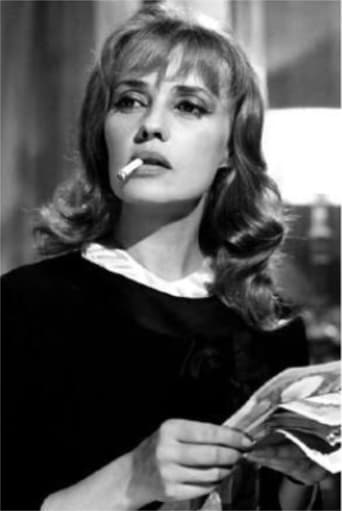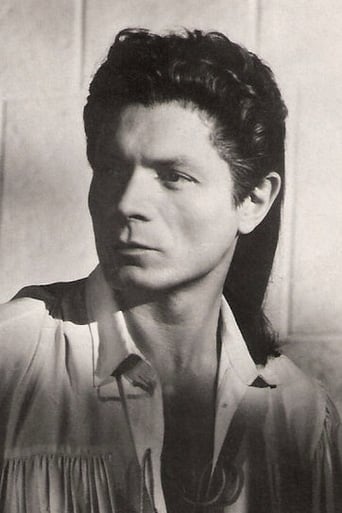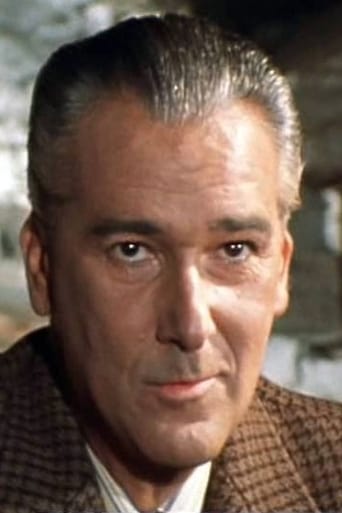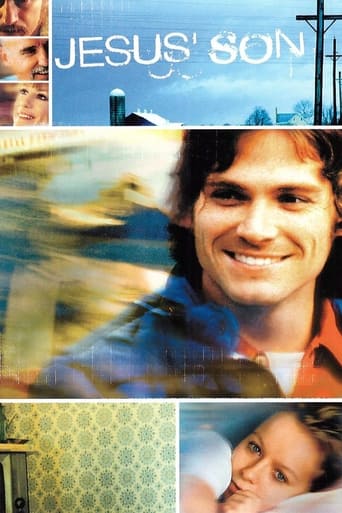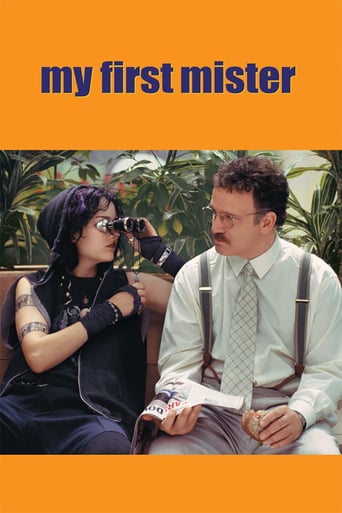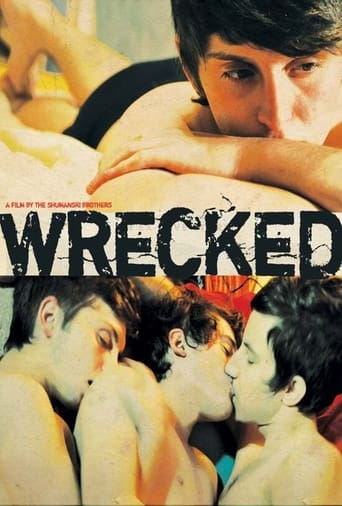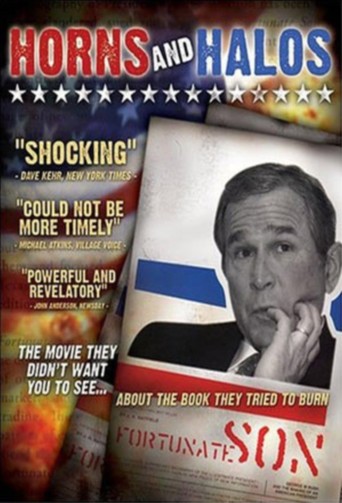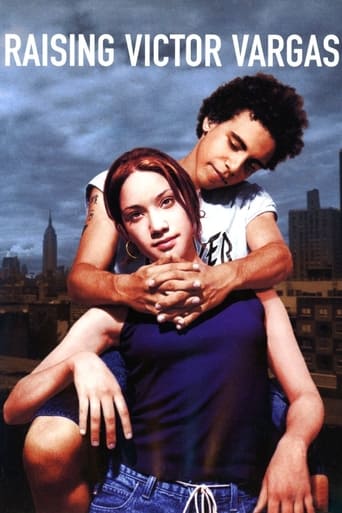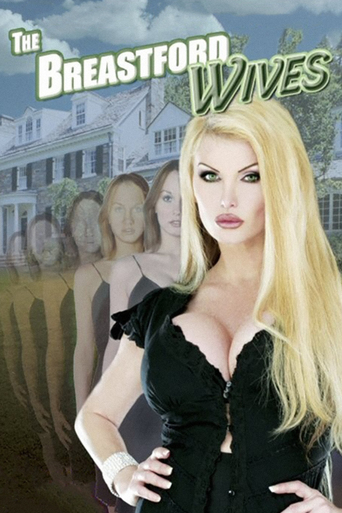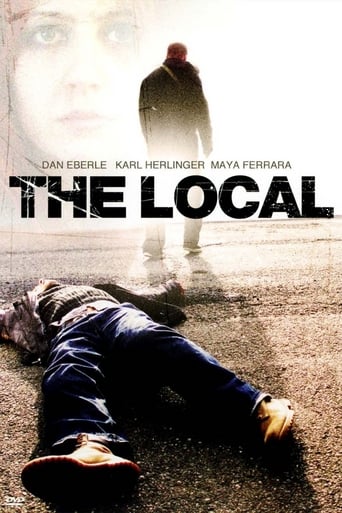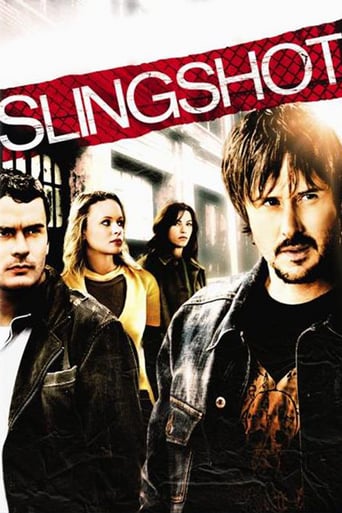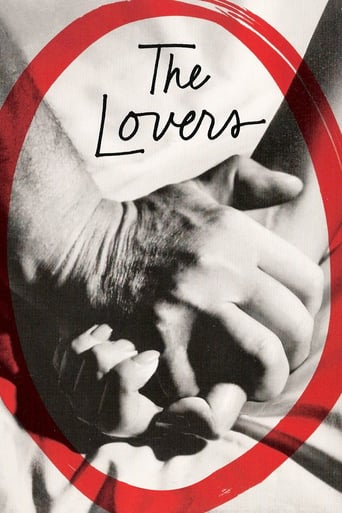
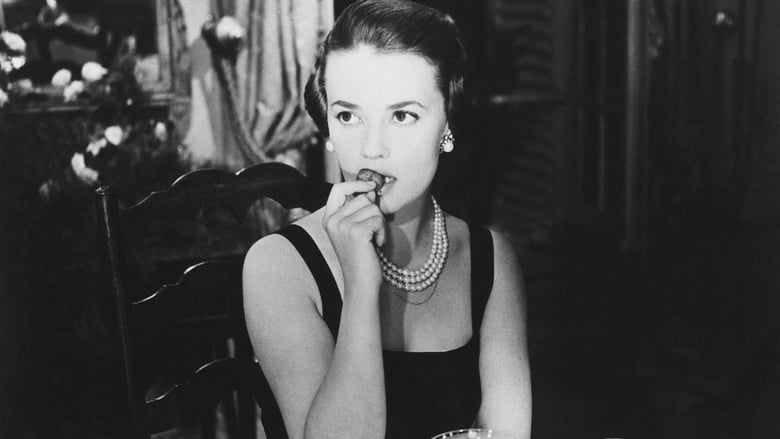
The Lovers (1958)
A shallow, provincial wife finds her relationship with her preoccupied husband strained by romantic notions of love, leading her further towards Paris and the country wilderness.
Watch Trailer
Cast
Similar titles
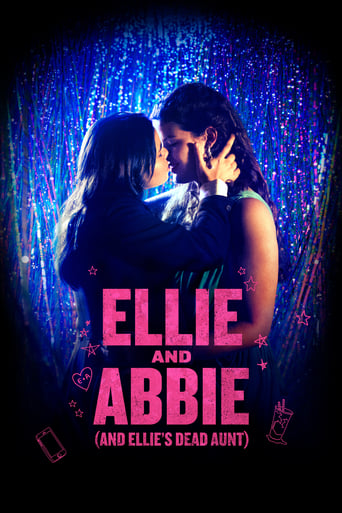
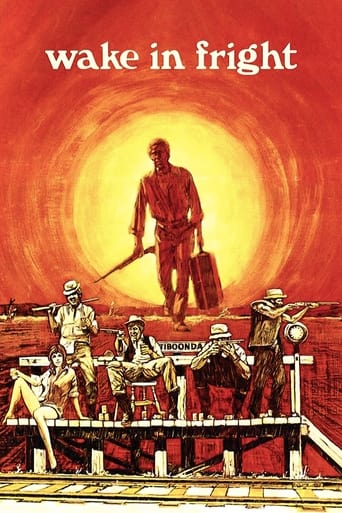
Reviews
I love this movie so much
There is, somehow, an interesting story here, as well as some good acting. There are also some good scenes
The storyline feels a little thin and moth-eaten in parts but this sequel is plenty of fun.
The film never slows down or bores, plunging from one harrowing sequence to the next.
One of Louis Malle's sterling juvenilia made at the age of 25, his second feature film after ELEVATOR TO THE GALLOWS (also stars Ms. Moreau), released the same year in 1958. THE LOVERS notches up the Special Jury Prize in Venice Film Festival and puts his leading lady's name on the French cinematic map, who would become a prominent face of the forthcoming NOUVEAU VAGUE.In THE LOVERS, Moreau plays Jeanne, the trophy wife of Henri Tournier (Cuny), a newspaper owner, they live in a countryside mansion near Dijon with a young daughter. After 8 years, their conjugal bond is strained because Henri habitually neglects her and sinks his teeth into work, to keep herself busy, Jeanne often commutes between home and Paris, where she stays with her childhood friend Maggy (Magre, who plays up the stuck-up Parisienne type), and strikes up an affair with a Spanish aristocrat, the polo-playing Raoul (de Vulallonga), who is smitten with her.But, that cannot slake Jeanne's cosmic bourgeois ennui, she has a perfect life but has nothing else to focus on outside her dead-end marriage and genteel fling, domestic discord ratchets up when Henri becomes more and more passive-aggressive in the manner of treating her, carps about her over-frequent excursions to Paris, and demands her to host a dinner party in their home with Maggy and Raoul invited, because the latter, is a man he has yet met, but whom his wife cannot praise enough.En route from Paris to home on the day of the dinner party, Jeanne's car breaks down and she hitchhikes with a passing stranger Bernard (Bory), a young and brusque archaeologist, who doesn't like speeding and has an errand to run before driving her to home, by which time, both her guests have already arrived. Out of courtesy, Henri invites Bernard to stay overnight, and the dinner, is as tedious as Jeanne has envisioned, Henri and Raoul's men's talk has worn thin quickly (noticeably, Bernard remains entirely silent during the dinner conversation in his formality). But under the magic spell of the moonlight, during an unplanned saunter nearby the mansion with Bernard, Jeanne's passion has been invigorated, their nocturnal foreplay has been tantalizingly relayed from woods (the touch of hands), to the boat (the kiss) floating on a quaint brook, finally to her bedroom, accompanied by Brahm's thematic music, Malle majestically hones the romantic atmosphere to consummate the anonymity of eroticism - two strangers, tossed together solely by their physical entanglement and declare "love" against the whole established world, what a cathartic occasion and at the same time, how desperate and entrapped a woman can be, intuits her knight-in-shining- armor like that? A slap on the face of bourgeois ennui, but also, Malle leaves his doubt near the end (through the movie's lucid and consistent third-person voice-over), there is no happily-ever- after awaits for the newly-paired lovers, they will face the music, one day but not today, la fin.Jeanne Moreau proffers a more relatable enactment than Catherine Deneuve in Luis Buñuel's BELLE DE JOUR (1967), as a woman lost in her aimlessness borne out of the encroaching contentment in her material lives, and tries to locate an outlet by liberating her sexual prowess, here, Jeanne's endeavor is comparatively more out-of-the-blue than shocking, and it is very clear, Bernard is just a romantic foil cropping up in the right time, right place (like the intruded bird during their dinner), his individuality never counts in Jeanne's yearning of running away and starting anew, except that, he can make her laugh, potently testified by her hysterical jag of guffaw (a metaphor of potency which can penetrate her state of normalcy). THE LOVERS, is a handsome black-and- white oldie permeated with Gallo-frame-of-mind and pristine coutures, slightly teeters on naïve escapism, but enormously engrossing to behold like a dream you don't want it to end.
This film did not blow me away as it did so many others.One significant flaw is the utter lack of chemistry between Jeanne (Jeanne Moreau) and Bernard (the homely Jean-Marc Bory). Jeanne couldn't stop laughing at Bernard's calling her husband a bear? Pul-eeeeese! The sex scene, considered racy in 1958 -- even prompting the arrest of an Ohio theater owner -- looks tepid today. Even the drawn-out seduction scene elicits yawns. Jeanne's muumuu is more Grimms Brothers than Victoria's Secret. And, stretching out in that boat long abandoned in a bog? Ewww...cobwebs and creepy crawlers come to mind!A most distracting element to "The Lovers" is the moral vacuity of its leads. Presumably, Jeanne is not mentally diminished, and she had married Henri (Alain Cuny, clearly embodying one of film history's most thankless roles) of her own free will and not at gunpoint. She hasn't been married long (her daughter's small enough to be lifted) and she lives in the lap of luxury in Dijon, which, while it ain't Paree, boasts sumptuous grounds on a body of water and a retinue of servants to anticipate every need. Jeanne's husband works a lot, but hey, someone's gotta pay the bills. Still, the lady of the house is not content. So one day, she meets Bernard by happenstance, Bernard makes her laugh, Henri invites Bernard over, Jeanne and Bernard cavort when everyone else is asleep, and the two run away together -- without a word of farewell. Er, OK. We are told, as a coda, that Jeanne is afraid but has no regrets. That's nice. I guess the moral of this tale is: When you have a one-night stand, run away with him. He just might be your soul mate! OK, again, I guess. I admit I have long admired the work of Moreau. No one else can so believably pull off "hang-dog" and stunning at the same time.The voice-over narration in this film seems highly derivative of "Jules et Jim" -- yet that memorable film, directed not by Malle but Truffaut, came out four years after this one did! I don't want to end this review without citing the excellent work of Jose Luis de Vilallongo as the somewhat shallow but vulnerable playboy character, Raoul. The tenderness he shows toward Jeanne, and his sensitivity at the Tournier dining table, adds admirable depth and pathos to his character. "I love you because you are quite different," he murmurs to Jeanne, holding her closely while they dance -- "different from all the other women!" Now, that's romance. What woman wouldn't yearn to hear THOSE words? And you can bet Bernard won't be thinking them up...As a great poet opined, "What fools these mortals be."
As a twenty-something, I saw this film with my boyfriend of the time, and as soon as it was over, we rushed home to do it ourselves. In the early-to-mid sixties, "Les Amants" was eroticism that was certainly explicit--albeit tastefully explicit, to our naive eyes. Made when Malle was twenty-five, with the young Jeanne Moreau, to the romantic Sextette that Brahams wrote when he was 27, this was the perfect sexy romance for its time and place.I just saw it again, now watching as a sixty-something in an age in which "Les Amants" would probably get an R rating--and a tame one. I'm jaded too. It's hard to feel much sympathy for a desperate housewife of the upper middle class as she battles ennui. But the love sequence is still a knockout. You can't stop to think about it as the lovers, who as yet barely know each other except for their terrific physical attraction, go from garden-to-boat- to bedroom; it's still erotic in its implication. the garden is too lovely to be true, the boat is white and clean, and Moreau wears her pearl necklace throughout, but the message of a woman who has only known pedestrian sex being introduced for the first time to the Real Thing rang a bell with me (I had a similar experience, minus the garden, the pearls and the boat). I sat there bawling my head off-- with nostalgia this time for an unrecoverable experience-- through the whole sequence.But the ending also rings true. What do you do when you come up for air?From one of the interviews on the CD, I learned that the plot was based on an 18th century story, and I can readily see that, just as could see the fin-de-siècle Viennese origin of Kubrick's "Eyes Wide Shut." In neither case does the contemporary updating of the tales make them any less effective.
Louis Malle's Les Amants is the most romantic film ever made. Screw subjectivity and critical judgment. I've just come off fresh from seeing it, and, in the spirit of the film, I'll let my excitement wash over me instead of letting it die down to see it coolly. Seeing it gave me one of those precious moments, moments where you gasp and go oh-my-god, disbelieving your eyes that cinema could go to places like this, and make you feel things you never felt were possible in fiction.Buried within the Optimum Releasing of the Louis Malle box set, but it emerges the most deafeningly romantic, even when compared to the already celestial ending of the more famous Elevator to the Gallows. Its blissed out view on happiness makes it impossible to attach any critical adjectives to it; it requires us to suspend all thinking faculties and just go with that one powerful emotion.It's amazing how it turns what could've looked like a cover of a chick romance novel into something this beautiful. Henri Decae, who almost single-handedly created the first images of the New Wave, literally sets the screen aglow in ecstasy, painting the two lovers in a heavenly light in that pivotal centerpiece, which is one of the greatest moments of cinema, bar none. Even Jean Vigo's L'Atalante holds nothing on this. (There will be spoilers from hereon, and I would urge you to stop reading this paragraph if you've not seen the film. The joy of discovery in this film is so much more than any other film I've experienced, that I'm wholly convinced that one should experience this as fresh as a virgin.) Stripped of their daily pretenses and graces, the two lovers traverse a God-made Eden, becoming simply Man and Woman and reuniting again, several millenia after the First Man and First Woman were expulsed from paradise. When Jeanne Moreau takes Jean-Marc Bory's hand and asks him 'Is this the land you created for me to lose myself in?', the gaze is sealed and the viewer can do nothing but share in their passion. The two lovers become such eminent symbols of love, sex, and happiness that it's hard to imagine anything more sensual and erotic than this, especially when compared to the fully colored and fully exposed sex symbols of today. They belong to an era removed from any other, not the era that the film was made in, but a black-and-white, pristine era that exists only in cinema, one in which true love still exists without the moorings of reality.And the decided lack of moorings in this film is what makes it so bewitching. Whether it's the fleeting white horse or the eyes of the beautiful beautiful Jeanne Moreau, the film doesn't look back, but indulges fully in the moment, that moment of sensuousness. It is so fitting that the film should be called Les Amants, because anything else would be pretension - the lovers become the lovers of any era, any millennium, by their love alone they have been elevated to the great lovers that have long passed. They transcend being, nature, rules and become one - spirits entwined - with a world that is beyond the tangible, such that any rational reasoning will not be understanding. It's a magical world, a fantasy world, a world that is as unreal as we want it to be real. And this world, the film proposes, can only be reached through a temporary moment of love, un-selfish, immaterial, illogical, and unquestioning love. And when you're able to give yourself in, together with the film, it suddenly becomes so clear and not that unreal anymore.At the risk of sounding like a nut, I just wanted to recommend this film to everyone who thought that this century has made us cynical. Cinema, which began and evolved with this century, has rarely stepped out of its time so gloriously that it becomes a monument, a structure of those classical (and probably impossible) days. It is the single most ravishingly beautiful moment in the history of cinema.
